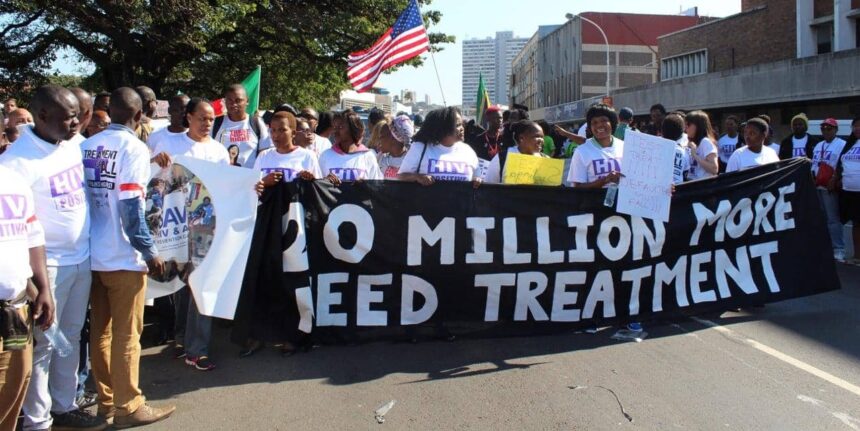In a recent press conference, South Africa’s Minister of Health, Aaron Motsoaledi, made a controversial statement likening civil society activists to AfriForum. This comparison has sparked outrage and criticism from many who see AfriForum as promoting white nationalist narratives and agendas.
AfriForum, a group that presents itself as a civil rights organization, has a history of lobbying against land reform, downplaying the brutality of apartheid, and framing white South Africans as victims. To compare this group to the Black-led, community-rooted HIV movement in South Africa is not only offensive but also an act of political violence.
The Minister’s attempt to centralize himself in South Africa’s HIV response story is seen as historical revisionism and an attempt to delegitimize the activists who are raising concerns about the state of the healthcare system. These activists are pointing out issues such as the loss of health workers, declining viral load testing, and the closure of key population clinics, which are essential for providing care to vulnerable populations.
The Minister’s self-congratulatory tone in touting the achievements in the healthcare system is called into question, as these milestones were achieved through the hard work and advocacy of communities and activists who fought for access to HIV treatment when denialism and indifference were prevalent policies.
The comparison to AfriForum’s tactics is seen as gaslighting, as it is AfriForum that silences dissent and vilifies those who demand change. The activists in the HIV movement are not the problem; they are fighting for transparency, urgency, and justice in the healthcare system.
The call for accountability from the Minister is clear: acknowledge the role that activists have played in building the foundation of the healthcare system and prioritize the lives of the people who rely on these services. The Minister is urged to withdraw his comparison, acknowledge the harm caused by his words, and focus on defending the lives of the people who are most affected by the state of the healthcare system.
Ultimately, it is the refusal to face the truth and address the systemic issues within the healthcare system that poses a threat to South Africa’s HIV response, not the activism and advocacy of those who are fighting for change. Tian Johnson, a Strategist at the Pan-African health justice non-profit, the African Alliance, has been at the forefront of advocating for a coordinated emergency response to South Africa’s healthcare crisis. Alongside civil society partners, Johnson has been actively engaging with the South African government to address the escalating healthcare challenges facing the country.
The calls for action began with an open letter to the SA Government on 5 February 2025, followed by another letter on 18 March 2025. These letters highlighted the urgent need for a comprehensive and strategic approach to tackling the healthcare crisis in South Africa. Subsequently, a meeting was held on 22 April 2025 with the Deputy Director General of Health and other officials, where further questions and concerns were raised.
The views and opinions expressed by Johnson in these letters and meetings reflect a deep commitment to improving the health outcomes and access to quality healthcare for all South Africans. The focus is on holding the government accountable for delivering on its mandate to provide adequate and effective healthcare services to the population.
It is essential to acknowledge the role of organizations like the African Alliance and individuals like Tian Johnson in pushing for positive change in the healthcare sector. Their advocacy efforts are crucial in ensuring that the voices of the most vulnerable communities are heard and that concrete steps are taken to address systemic issues within the healthcare system.
As we continue to navigate the challenges posed by the healthcare crisis in South Africa, it is imperative that we support and amplify the work of advocates like Tian Johnson. By working together and holding our leaders accountable, we can strive towards a more equitable and accessible healthcare system for all.








